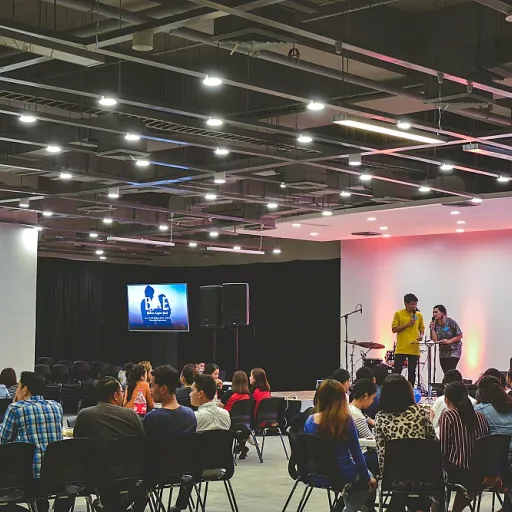The Evolving Role of HR in Employee Experience
Adapting to New Employee Demands
In today’s rapidly changing business environment, the role of HR professionals is evolving to meet the diverse needs of employees. Historically focused on administrative tasks, modern human resource teams have expanded their responsibilities to encompass a comprehensive approach to employee experience. This transformation is driven by the necessity to support not just the professional development of employees, but their overall well-being and engagement.
HR professionals are now key drivers in creating an environment where employees feel valued and recognized for their hard work. This involves responding to the challenges of remote work, managing team dynamics, and enhancing the organizational culture. The focus is shifting from traditional performance management to fostering a culture of appreciation and support.
The increasing emphasis on employee experience comes with its own set of challenges. It is crucial for HR professionals to stay informed about best practices in employee engagement and to understand the impact of their strategies on the organization’s success. To effectively celebrate the hard work of their teams, HR professionals must continuously evolve, adapting to new demands and utilizing innovative approaches.
For those interested in exploring how HR professionals address challenges in enhancing employee experience, you can gain insights from understanding the differences in
employee assessments and workplace experience.
Key Challenges in Enhancing Employee Experience
The Complex Landscape HR Faces in Improving Employee Journeys
The realm of enhancing employee experience is fraught with challenges that require the deft touch of human resource professionals. Today, as workers find themselves in dynamic organizations, the ways in which businesses approach employee engagement can differ vastly. HR teams are tasked with balancing the needs and expectations of employees against corporate goals, as they navigate an ever-evolving landscape.
Some key challenges can arise from a myriad of sources:
- Adapting to Remote Work: As remote work becomes a staple in many organizations, HR needs to find innovative solutions to maintain engagement levels and facilitate team dynamics virtually.
- Performance Management: An essential component in fostering professional growth, effective performance management can often be complex, especially in diverse and globalized teams.
- Cultural Diversity: A richly diverse workforce presents its own set of challenges in communication and ensuring inclusivity, further highlighting the need for HR's strategic intellect.
Addressing these challenges is not simply about overcoming obstacles, it’s about fundamentally enhancing the employee journey within the company. For more insights into how employee voice can shape this journey, explore this resource on
understanding the value of employee voice.
Professionals must consistently seek avenues for professional development in order to tackle these challenges effectively. This integral role played by HR professionals in navigating hurdles ensures that employees' careers are supported and sustained in a flourishing company culture.
Innovative Strategies for HR Professionals
Revamping HR Strategies: Pioneering Initiatives for a Better Tomorrow
In today's fast-paced business environment, HR professionals are often looked upon as architects of the workplace experience. Their roles have evolved substantially over the years, demanding innovative strategies to enhance employee engagement and satisfaction. To achieve this, organizations must adapt to modern challenges and leverage creative approaches.
- Blending Remote and On-site Work: As remote work becomes a staple in many organizations, HR teams are tasked with designing flexible work arrangements that cater to diverse employee needs. This hybrid model fosters work-life balance and encourages productivity.
- Professional Development Programs: A well-structured professional development plan is essential for employee career growth. When HR professionals offer tailored development opportunities, it promotes a culture of continuous learning and skill enhancement, benefiting both the individual and the organization.
- Leverage Technology for Engagement: Technology plays a crucial role in improving employee experience. By utilizing AI-driven platforms and analytics, HR can better understand employee preferences and behaviors to create customized engagement strategies.
- Encouraging Employee-Driven Innovation: By fostering an environment where employees feel empowered to propose ideas and solutions, organizations can cultivate a culture of innovation that contributes to long-term success.
The core of these strategies lies in understanding the needs and aspirations of the workforce. HR professionals should prioritize collecting and analyzing employee feedback to make data-driven decisions. For a deeper understanding of the challenges faced by employees, consider exploring essential questions to ask during the hiring process (https://www.employee-experience-trends.com/blog/essential-questions-to-ask-a-recruiter-during-a-phone-screen). This proactive approach not only supports employee satisfaction but also drives overall organizational success.
The Importance of Employee Feedback
Valuable Insights from Employee Feedback
Feedback from employees can be a treasure trove of information for HR professionals looking to enhance the employee experience. While the role of HR is continually evolving, gathering insights from the people within the organization provides actionable steps to improve their workplace environment.
Engaging with employee feedback not only helps management understand the intricacies of day-to-day operations but also highlights areas that require attention. With the rise of remote work, ensuring that all voices are heard can be more challenging, yet it remains a critical aspect of maintaining high levels of employee engagement.
In today’s dynamic and ever-changing work environment, HR professionals must employ innovative strategies to collect this valuable data. Surveys, regular check-ins, and open forums offer platforms for employees to express their views freely. Here, both quantitative metrics and qualitative narratives are essential in painting a complete picture of the work experience in a particular organization.
This feedback not only assists in professional development strategies but also serves as a crucial element in performance management processes. Understanding the gaps between employee expectations and reality can drive substantial improvements in overall satisfaction and productivity.
Feedback loops should be integrated into the company culture, encouraging an atmosphere of continuous improvement. When organizations actively listen and respond, they create a sense of trust and belonging, which further reinforces organizational success.
Investing time and resources in gathering and analyzing employee feedback will ultimately foster a culture of recognition and support, paving the way for future trends in employee experience. As HR professionals continue to celebrate and honor their roles in enhancing human resource practices, integrating feedback mechanisms becomes an integral part of this journey. Whether it's through social media campaigns or appreciation days, recognizing hard work and input from teams strengthens the bond within the company. By valuing employee insights, organizations can successfully navigate the complex landscape of modern business, ensuring long-term growth and career development for their workforce.
Building a Culture of Recognition and Support
Nurturing a Culture of Appreciation
Creating a supportive and rewarding environment is crucial for any business aiming to boost employee engagement and satisfaction. In today's competitive landscape, where remote work is becoming more prevalent and organizations strive to meet diverse human resource needs, the role of HR professionals in fostering a culture of recognition cannot be understated.
First, it is important for companies to recognize the hard work and dedication of their teams. Professionals and employees thrive in environments where their efforts are not just acknowledged but celebrated. Building a culture where appreciation is integral encourages employee engagement and contributes to the organization’s success.
Employee recognition goes beyond simple acknowledgments. It involves setting up formal appreciation days, like International Appreciation Day, to formally celebrate milestones and achievements. Such events emphasize the value the organization places on every professional day, aligning with organizational values and enhancing morale across teams.
Moreover, businesses can leverage social media to celebrate their employees. Public expressions of appreciation on platforms create a positive company culture and showcase that the organization values its people. This can be particularly impactful during official recognition events, such as a day honoring employees or a professional development day.
Equally significant is the integration of recognition into performance management systems. By linking appreciation to career advancement and professional growth, HR teams can support persistent motivation and commitment. Employees are more likely to invest themselves in their roles when they feel their efforts contribute to personal and team development.
Ultimately, the strategic importance of nurturing a culture of recognition helps ensure that professionals are not just surviving in their workplace but truly thriving. Organizations that prioritize this create an atmosphere where employees feel seen, valued, and supported on their career journeys throughout the year.
Future Trends in Employee Experience
Anticipating Change in Employee Experiences
The landscape of employee experience is constantly evolving, shaped by emerging trends and shifting workplace dynamics. As organizations strive for success, acknowledging these trends becomes essential for human resources professionals.
In recent years, remote work has significantly altered traditional work environments. Companies that embrace flexible arrangements often witness enhanced employee engagement, as this approach caters to diverse lifestyle needs and work preferences. Professionals acknowledge that fostering inclusivity and adaptability in workplace policies is no longer optional but necessary, as we adapt to new ways of working.
A strong focus on mental health and well-being is also prominent within organizations. Recognizing the human side of work, companies today prioritize support systems for employees undergoing stress and burnout. By integrating mental health initiatives, businesses create a holistic work atmosphere that nurtures health and success.
With technological advancement, the integration of sophisticated tools for performance management and feedback collection is on the rise. Human resource teams utilize data-driven insights to understand employee expectations and drive organizational improvement, ensuring that employee feedback leads to tangible outcomes.
As the idea of professional development gains traction, HR professionals emphasize creating opportunities for career advancement and skills enhancement. Programs designed to cultivate employee growth not only support individual careers but bolster overall business performance as well.
Finally, the culture of recognition and support is crucial for accommodating future workplace trends. By celebrating milestones and acknowledging contributions, HR teams ensure employees feel valued, fostering a sense of belonging and commitment.
The responsibility of HR professionals in adapting to these future trends is paramount. It's a day celebrated, where every effort impacts the organization's success, paving the way for a vibrant and resilient company culture. Embracing these changes guarantees that the future of employee experiences remains promising and rewarding for all.














